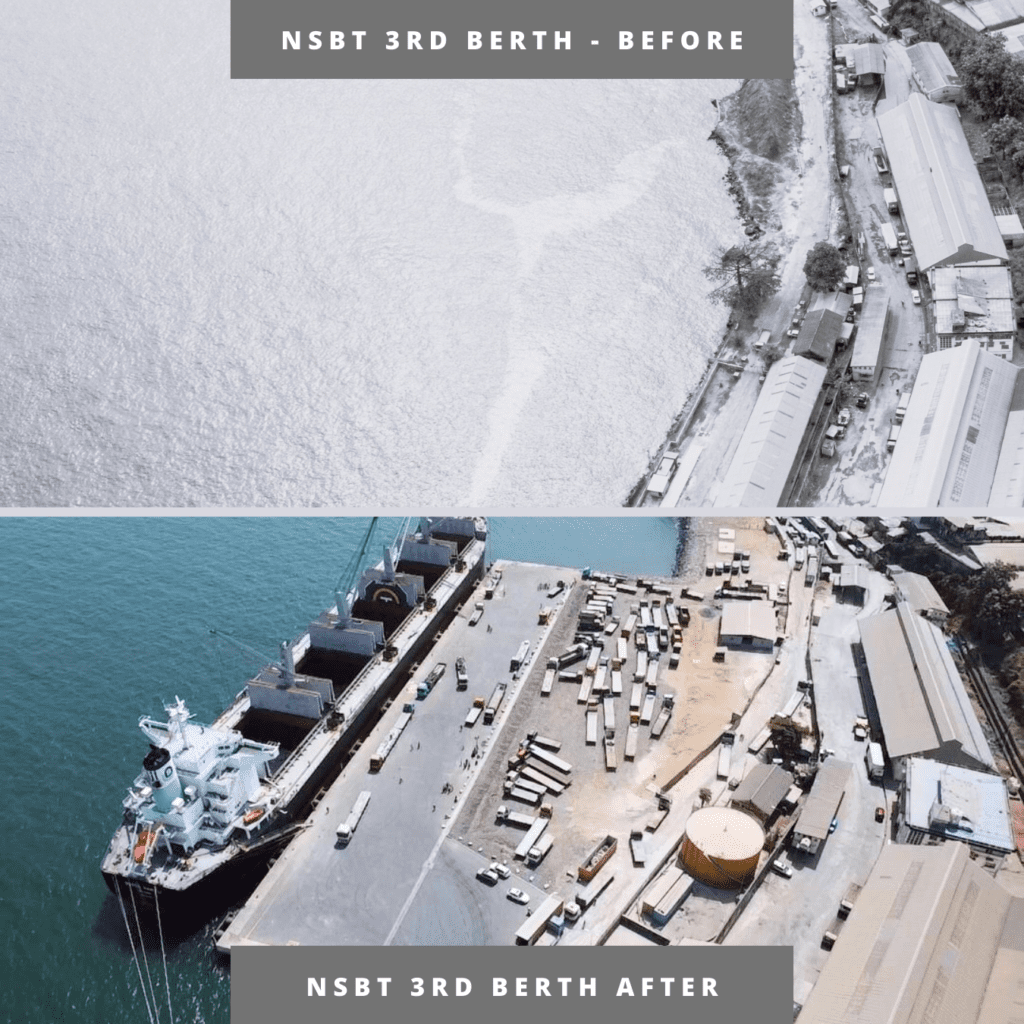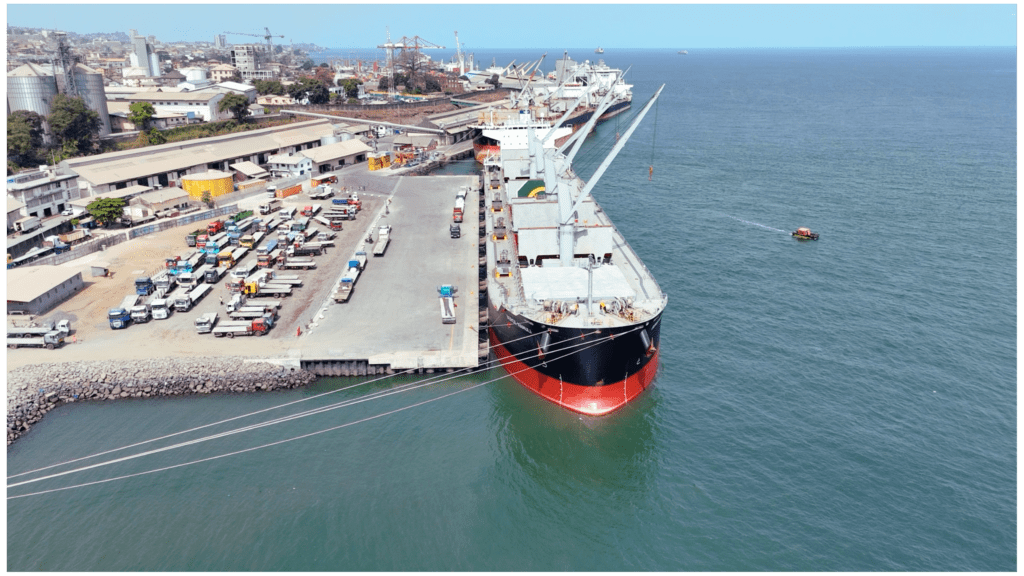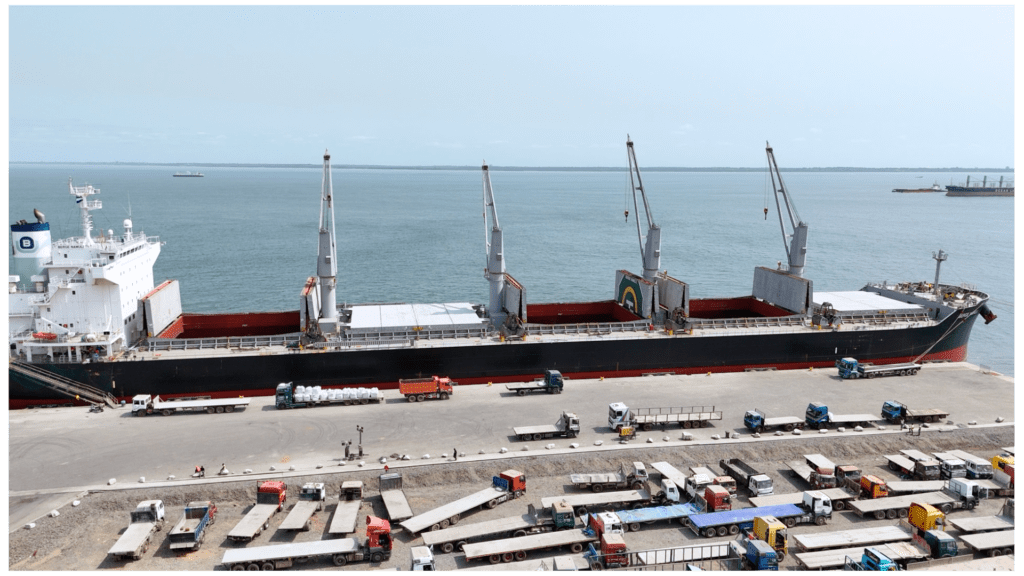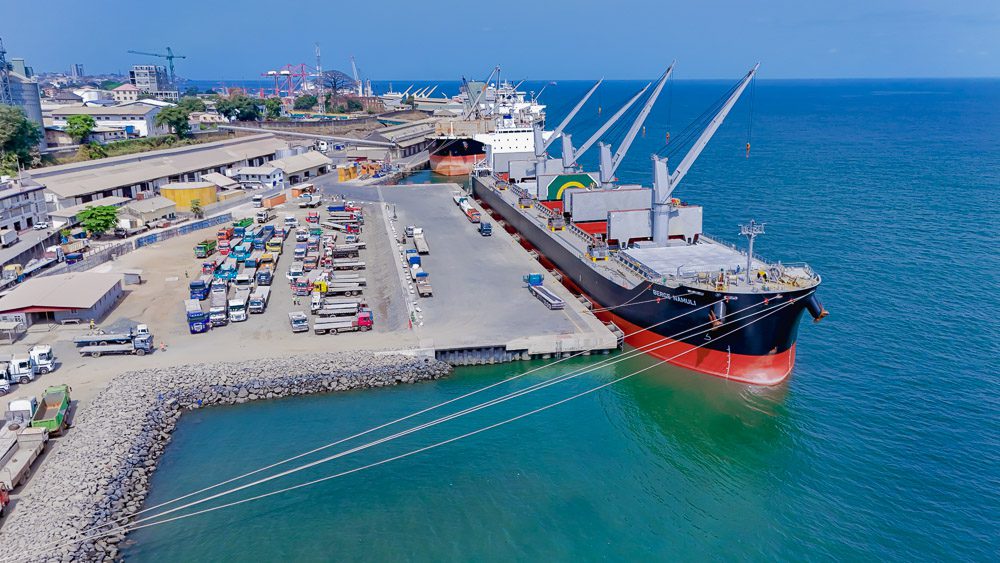NSBT welcomed its inaugural vessel, the SAFI NALFI, to its deep-water berth on Friday, Dec 20th 2024, carrying bagged rice. This critical piece of infrastructure now accommodates vessels of 225 meters and 11.5 meters operational draft (design draft of 13m), increasing the port’s capacity to handle larger vessels and bulk cargo.
With the steady arrival of vessels this year, the new berth has increased capacity at the port by more than 30%, strengthening customer supply chains with enhanced global connectivity, increased reliability, and quicker turnaround times. Cargo movements have contained shipments of bagged rice, flour, crude oil and aggregates.
Siamba Kamara, General Manager at NSBT commented, “Cargo handling at the terminal has been exceptionally efficient and well-coordinated. The team ensures smooth operations, from careful loading and unloading, minimising delays and ensuring the safe handling of all types of cargo. The team’s expertise and commitment to quality service make for a seamless and reliable operations.”
Improvements to Freetown’s Port Operations
Recent improvements at the QEII Terminal have proven to be instrumental in attracting recognized global players. The 3rd berth’s capacity opens new avenues for trade, strengthens the logistics network and increases regional economic growth. Port enhancements are in line with the government’s medium-term national framework 2024-2030 (A Transformative Acceleration Agenda for Food Security, Human Capital Development and Job Creation).
NSBT and Nectar Group have committed to addressing the region’s shipping challenges by strengthening port performance, efficiency, and resilience through increased investment in infrastructure, technology, and digitalization. A rolling programme of developments have been addressing key issues, including:
- Upgrades to existing port equipment and the commissioning of new equipment to enable faster, versatile and safer cargo handling.
- Traffic management has been greatly improved to minimize bottlenecks and waiting times for vessels and to reduce the carbon footprint associated with each shipment.
- Improved storage/warehousing facilities with enhanced space optimization.
- Improvement to quayside/port lighting, more informative signage and utilization of solar power.
- Technology and communication investments with real-time cargo updates, efficient scheduling, and transparent pricing structures.
Through the integration of technology, enhanced efficiency, safety and sustainability, the dry bulk industry in Sierra Leone has a great opportunity for transformative change.
NSBT Offering: Port & Operations Management, Terminal Design, Bulk Handling, Warehousing, Logistics, & Maintenance
Nectar Group Port Development & Consultancy Services: The scope of our projects ranges from improving existing bulk handling equipment and facilities to developing new terminals. Project examples include:
- River berth development and procurement of equipment.
- New berth development and construction.
- Designing and manufacturing bespoke conveying and bagging stations.
- Fertilizer storage facility incorporating blending and bagging stations.
- Procurement and installation of two ship-to-shore gantry cranes.



